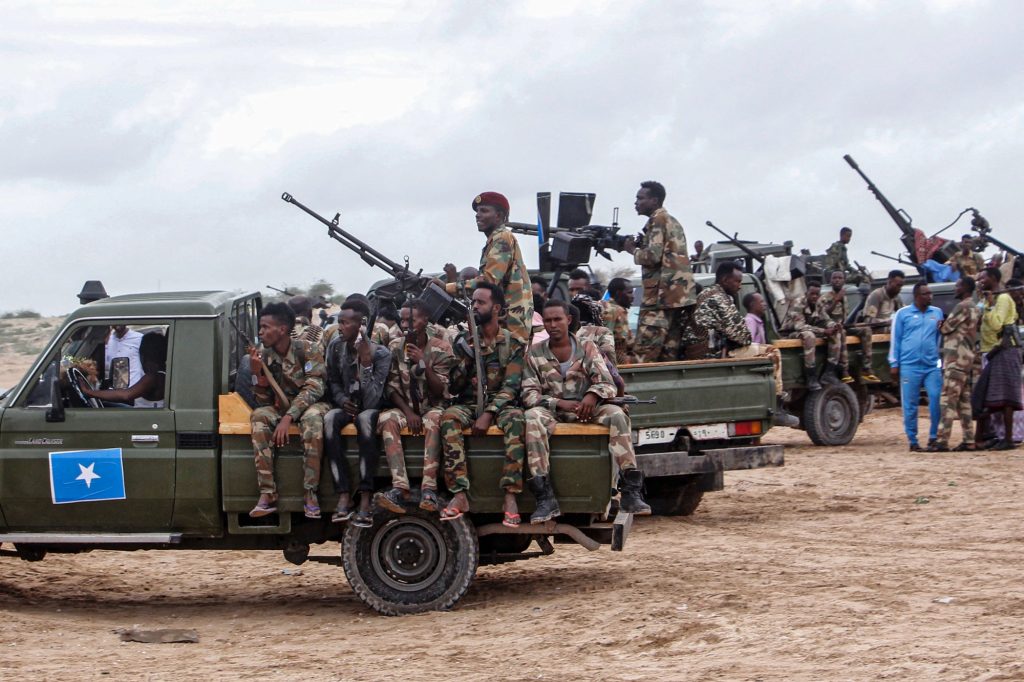The International Committee of the Red Cross (ICRC) reported a significant increase in conflict-related casualties across Somalia, particularly in regions experiencing intensified clashes between government forces and insurgents. Madina Hospital in Mogadishu, supported by the ICRC, admitted 203 weapon-wounded patients since the beginning of the year, marking a 26% rise compared to the previous quarter.
The escalation is attributed to the Shabelle offensive, a multi-region military campaign launched by the Somali National Army to reclaim territories from Al-Shabaab militants. The offensive has faced stiff resistance, contributing to the growing casualty count and raising humanitarian concerns. Hospitals near active front lines are struggling to meet the surge in medical needs, with the ICRC delivering emergency medical supplies to 20 hospitals across the country in the first three months of the year.
The surge in fighting has also forced more than 100,000 people to flee their homes, exacerbating the humanitarian crisis. The ICRC has called on all parties to respect their obligations under international humanitarian law and ensure the protection of civilians. The organization emphasized the urgent need for increased support to medical facilities and humanitarian corridors to assist those affected by the conflict.
This uptick in violence comes amid the withdrawal phase of the African Union Transition Mission in Somalia (ATMIS), prompting fears of a security vacuum. Both the UN and ICRC have urged warring parties to ensure the protection of civilians and allow humanitarian access to the wounded. The international community continues to monitor the situation closely, with calls for increased support to Somalia’s healthcare infrastructure and conflict resolution efforts.The International Committee of the Red Cross (ICRC) reported a significant increase in conflict-related casualties across Somalia, particularly in regions experiencing intensified clashes between government forces and insurgents. Madina Hospital in Mogadishu, supported by the ICRC, admitted 203 weapon-wounded patients since the beginning of the year, marking a 26% rise compared to the previous quarter.
The escalation is attributed to the Shabelle offensive, a multi-region military campaign launched by the Somali National Army to reclaim territories from Al-Shabaab militants. The offensive has faced stiff resistance, contributing to the growing casualty count and raising humanitarian concerns. Hospitals near active front lines are struggling to meet the surge in medical needs, with the ICRC delivering emergency medical supplies to 20 hospitals across the country in the first three months of the year.
The surge in fighting has also forced more than 100,000 people to flee their homes, exacerbating the humanitarian crisis. The ICRC has called on all parties to respect their obligations under international humanitarian law and ensure the protection of civilians. The organization emphasized the urgent need for increased support to medical facilities and humanitarian corridors to assist those affected by the conflict.
This uptick in violence comes amid the withdrawal phase of the African Union Transition Mission in Somalia (ATMIS), prompting fears of a security vacuum. Both the UN and ICRC have urged warring parties to ensure the protection of civilians and allow humanitarian access to the wounded. The international community continues to monitor the situation closely, with calls for increased support to Somalia’s healthcare infrastructure and conflict resolution efforts.

